Soma 750mg: A Comprehensive Guide
Soma, also known by its generic name carisoprodol, is a muscle relaxant commonly prescribed to relieve discomfort associated with acute, painful musculoskeletal conditions. The 750mg dosage is a higher strength typically prescribed for short-term use (up to two or three weeks) to manage severe muscle pain and spasms. This guide provides an in-depth look at Soma 750mg, including its uses, mechanism of action, side effects, risks, precautions, and alternatives.
What is Soma (Carisoprodol)?
Soma is a centrally acting muscle relaxant that works by blocking pain sensations between the nerves and the brain. It is not a narcotic, but it has the potential for abuse and dependence due to its sedative effects. Soma is often prescribed alongside rest, physical therapy, and other treatments to manage acute musculoskeletal pain.
The 750mg dosage is one of the highest available and is typically reserved for patients who require stronger relief from severe muscle spasms or pain. It is usually taken three times a day and at bedtime, but the exact dosing regimen should be determined by a healthcare provider.
Mechanism of Action
The exact mechanism of action of Soma is not fully understood, but it is believed to work by altering communication between neurons in the brain and spinal cord. Specifically, it may depress polysynaptic reflexes in the central nervous system (CNS), leading to muscle relaxation and pain relief.
Soma is metabolized in the liver into meprobamate, a compound with anxiolytic and sedative properties. This metabolite contributes to Soma’s effects but also increases the risk of dependence and abuse.
Uses of Soma 750mg
Soma 750mg is primarily used for the short-term relief of acute musculoskeletal pain and spasms. Some common conditions it is prescribed for include:
- Muscle Strains and Sprains: Soma can help relieve pain and stiffness caused by injuries to muscles or ligaments.
- Back Pain: It is often prescribed for acute lower back pain, particularly when muscle spasms are present.
- Post-Surgical Pain: Soma may be used to manage pain and muscle spasms following surgery.
- Fibromyalgia: In some cases, Soma is prescribed off-label to manage pain associated with fibromyalgia.
It is important to note that Soma is not intended for long-term use or chronic pain conditions. Prolonged use can lead to tolerance, dependence, and withdrawal symptoms.
Side Effects of Soma 750mg
Like all medications, Soma can cause side effects, especially at higher doses like 750mg. These side effects can range from mild to severe and may include:
Common Side Effects
- Drowsiness or sedation
- Dizziness
- Headache
- Nausea
- Upset stomach
- Agitation or irritability
- Insomnia
Serious Side Effects
- Allergic Reactions: Symptoms may include rash, itching, swelling, difficulty breathing, or severe dizziness.
- Seizures: Although rare, Soma can lower the seizure threshold, particularly in patients with a history of epilepsy.
- Dependence and Withdrawal: Long-term use of Soma can lead to physical dependence, and sudden discontinuation can cause withdrawal symptoms such as anxiety, insomnia, tremors, and muscle twitching.
- Respiratory Depression: High doses of Soma, especially when combined with other CNS depressants, can slow breathing and lead to respiratory failure.
Long-Term Risks
- Tolerance: Over time, the body may become less responsive to Soma, requiring higher doses to achieve the same effect.
- Addiction: Soma has the potential for misuse and addiction, particularly in individuals with a history of substance abuse.
- Cognitive Impairment: Prolonged use of Soma can affect memory, concentration, and overall cognitive function.
Risks and Precautions
Soma 750mg is a potent medication that requires careful consideration of risks and precautions. Some key points to keep in mind include:
Contraindications
- Porphyria: Soma is contraindicated in patients with acute intermittent porphyria, a rare genetic disorder.
- Allergy to Carisoprodol or Meprobamate: Patients with a known allergy to Soma or its metabolite should avoid this medication.
- Pregnancy and Breastfeeding: Soma can harm a developing fetus and pass into breast milk, posing risks to infants.
Drug Interactions
Soma interacts with a wide range of medications, including:
- CNS Depressants: Combining Soma with alcohol, benzodiazepines, opioids, or other sedatives can enhance its sedative effects, increasing the risk of respiratory depression and overdose.
- Antidepressants: Soma may interact with certain antidepressants, increasing the risk of serotonin syndrome.
- Other Muscle Relaxants: Combining Soma with other muscle relaxants can increase the risk of side effects.
Dosage and Administration
- Soma 750mg is typically taken three times a day and at bedtime, but the exact dosing regimen should be determined by a healthcare provider.
- The medication should be taken with food to reduce the risk of stomach upset.
- Abrupt discontinuation of Soma can lead to withdrawal symptoms, so the dose should be tapered gradually under medical supervision.
Managing Side Effects and Risks
To minimize the risks associated with Soma 750mg, patients and healthcare providers should take the following steps:
- Start Low and Go Slow: Begin with the lowest effective dose and increase gradually if needed.
- Monitor for Side Effects: Regularly assess for signs of sedation, respiratory depression, or other serious side effects.
- Avoid Alcohol and Sedatives: These substances can enhance Soma’s sedative effects and increase the risk of overdose.
- Use as Prescribed: Take Soma exactly as directed by a healthcare provider and avoid increasing the dose without consultation.
- Regular Follow-Ups: Schedule regular check-ups to monitor the effectiveness of the medication and assess for any adverse effects.
Alternatives to Soma
For patients who cannot tolerate Soma or are at high risk of side effects, alternative pain management options may include:
- Non-Pharmacological Therapies: Physical therapy, massage, acupuncture, or chiropractic care can help relieve muscle pain and spasms.
- Other Muscle Relaxants: Medications like cyclobenzaprine or methocarbamol may be considered, though they also carry risks of side effects.
- NSAIDs: Nonsteroidal anti-inflammatory drugs (e.g., ibuprofen or naproxen) can help reduce pain and inflammation.
- Heat or Ice Therapy: Applying heat or ice to the affected area can provide relief from muscle pain and stiffness.
Conclusion
Soma 750mg is a powerful muscle relaxant that can provide significant relief for individuals with acute musculoskeletal pain and spasms. However, its use comes with risks, including side effects, dependence, and potential for misuse. Patients and healthcare providers must work together to ensure that Soma is used safely and effectively. By following prescribed guidelines, monitoring for side effects, and exploring alternative treatments when necessary, patients can achieve pain relief while minimizing risks.
If you have been prescribed Soma 750mg, it is essential to communicate openly with your healthcare provider about any concerns or side effects. Never adjust your dosage or stop taking the medication without medical advice, as this can lead to serious complications. With proper management, Soma can be a valuable tool in the treatment of acute musculoskeletal pain.

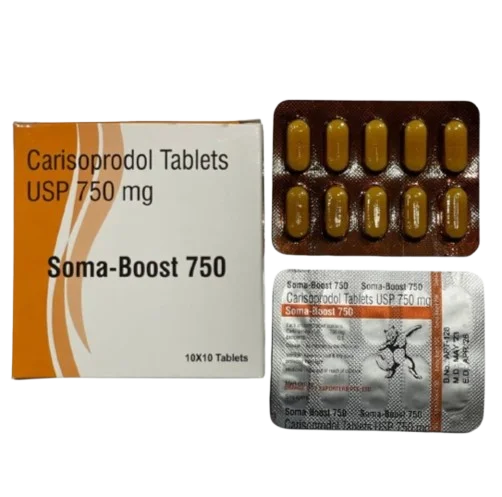
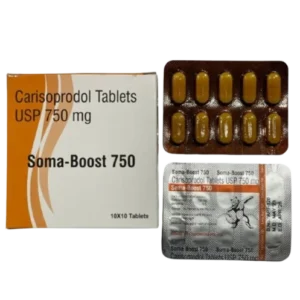
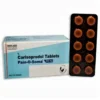


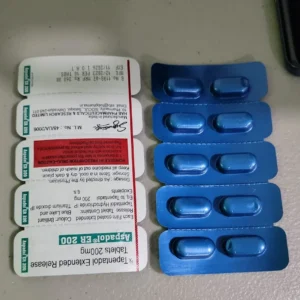
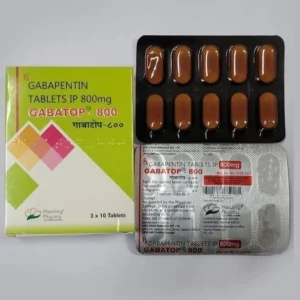
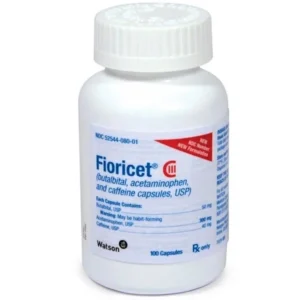
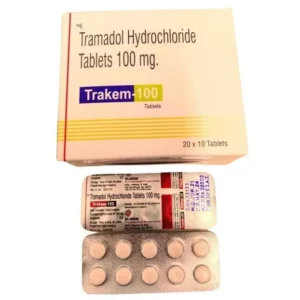
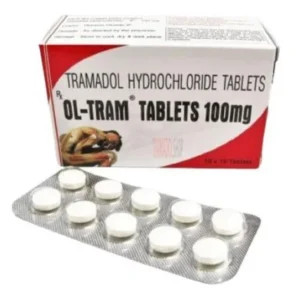
Reviews
There are no reviews yet.